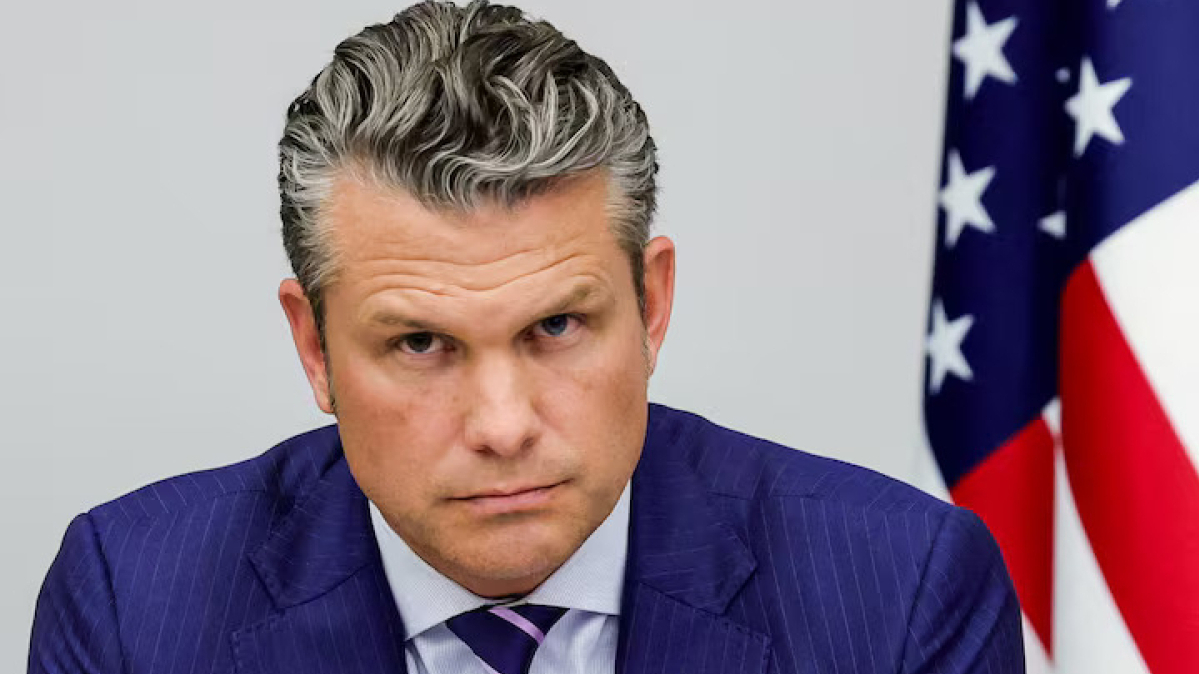Two killed in Israeli attack on first day of Ramadan in Gaza
Two Palestinians were killed on the first day of Ramadan after Israeli forces opened fire in the Gaza Strip, according to local sources and hospital o...

A U.S. strike on a suspected drug-smuggling vessel in the eastern Pacific killed four men, marking the latest escalation in President Donald Trump’s expanding campaign against narcotics networks across the Americas, according to international media.
The United States carried out another strike on a boat suspected of transporting illegal drugs in the eastern Pacific Ocean, killing all four people aboard, U.S. Defence Secretary Pete Hegseth announced on X on Wednesday, according to international media.
Hegseth said the strike was ordered by President Trump and targeted a vessel “transiting along a known narco-trafficking route and carrying narcotics.” He added that the attack occurred in international waters and that no U.S. personnel were harmed.
A video posted by Hegseth showed the vessel engulfed in flames after being struck. It was the 14th such operation since the campaign began in early September, bringing the total number of fatalities to at least 61.
“Earlier today, at the direction of President Trump, the Department of War carried out a lethal kinetic strike on yet another narco-trafficking vessel,” Hegseth said. “The Western Hemisphere is no longer a safe haven for narco-terrorists bringing drugs to our shores to poison Americans. The Department of War will continue to hunt them down and eliminate them wherever they operate.”
The Trump administration has described these actions as part of a broader military effort to stem the flow of narcotics into the United States via the Pacific and Caribbean. President Trump has justified the strikes as an escalation in what he calls an “armed conflict” with drug cartels, invoking the same legal authority used by President George W. Bush after the 9/11 attacks to wage war on terrorism.
At the same time, the U.S. has significantly reinforced its military presence in the Caribbean and Pacific, deploying warships, Marines, bombers, spy aircraft, drones, and the world’s largest warship, the USS Gerald R. Ford. Officials say the deployments are meant to support anti-narcotics operations, but they have also fuelled speculation that Washington’s intentions extend to pressuring Venezuelan President Nicolás Maduro, whom the U.S. accuses of leading a drug-trafficking organisation, an allegation he denies.
Venezuela’s attorney general told international media there was “no doubt” that the Trump administration’s goal was to overthrow the Venezuelan government and seize its vast reserves of oil, gold and copper.
The U.S. is among several nations that do not recognise Maduro as Venezuela’s legitimate leader following the 2024 presidential election, which was widely criticised as neither free nor fair. Opposition figures claimed their candidate had won by a landslide.
Meanwhile, the growing number of strikes has stirred debate in Washington. Lawmakers from both major parties have questioned the legality of the operations, the lack of evidence tying the targeted boats to drug cartels, and the president’s authority to order lethal military action without congressional approval.
Senator Mark Warner, the top Democrat on the Senate Intelligence Committee, criticised the administration for withholding legal justifications and limiting military briefings to Republicans. “Shutting Democrats out of a briefing on U.S. military strikes and withholding the legal justification for those strikes from half the Senate is indefensible and dangerous,” Warner said.
The Senate is reportedly considering a war powers resolution that would prohibit future strikes in or near Venezuelan waters unless Congress authorises them.
Regional governments, including Colombia and Venezuela, have condemned the U.S. actions, while experts have warned that the operations risk escalating tensions across Latin America. Despite mounting criticism, the Trump administration has given no indication that it plans to scale back its campaign.
According to international media, the strikes reflect an increasingly aggressive approach by Washington in what it portrays as a global fight against narcotics, one that is blurring the line between law enforcement and military conflict.
Ruben Vardanyan has been sentenced to 20 years in prison by the Baku Military Court after being found guilty of a series of offences including war crimes, terrorism and crimes against humanity.
The Pentagon has threatened to designate artificial intelligence firm Anthropic as a “supply chain risk” amid a dispute over the military use of its Claude AI model, according to a report published Monday.
Israeli airstrikes on southern Lebanon killed two people in 12 hours, Lebanon’s Health Ministry said on Tuesday.
Representatives of Ukraine, Russia and the United States are set to meet in Geneva for a third round of trilateral negotiations aimed at ending the nearly four-year war, even as both sides intensify military pressure on the ground.
President Donald Trump said he will be involved “indirectly” in nuclear negotiations between the United States and Iran in Geneva, as both sides resume diplomacy against a backdrop of military pressure and deep mistrust.
Hungary and Slovakia announced a suspension of diesel exports to Ukraine on Wednesday.
A platoon of Swedish Air Force Rangers is training in Greenland as part of the ongoing “Arctic Endurance” exercise, according to Sweden’s military.
U.S.-mediated talks between Russia and Ukraine in Geneva ended after two days of negotiations that Ukrainian President Volodymyr Zelenskyy described as difficult, while signalling progress on the military track.
Millions of Muslims around the world have begun observing Ramadan, the ninth month of the Islamic lunar calendar and the most sacred period in Islam.
Foreign intelligence services are able to see messages sent by Russian soldiers using the Telegram messaging app, Russia's minister for digital development Maksud Shadayev said on Wednesday, the Interfax news agency reported.
You can download the AnewZ application from Play Store and the App Store.

What is your opinion on this topic?
Leave the first comment